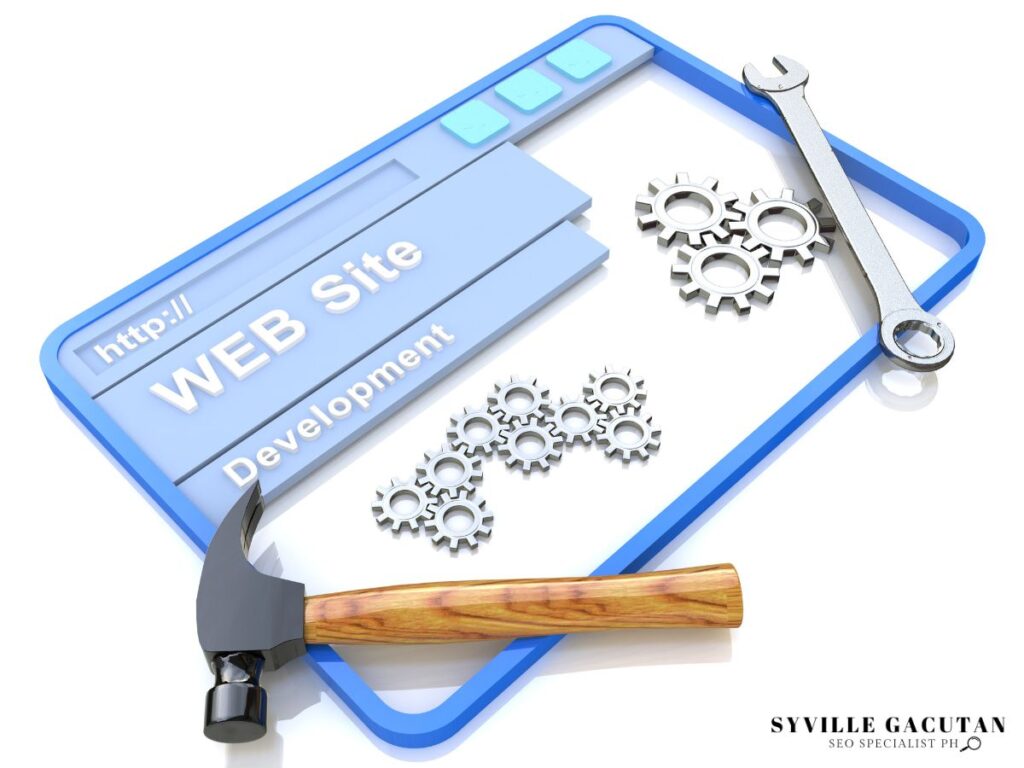
The Power of Schema Markup for Enhanced SERP Visibility
Schema markup boosts website visibility on search engine results pages by embedding structured data into HTML, helping search engines better understand and display content. This microdata makes rich snippets that look better, grab attention, and get more people to click. There are different types of schema markup: like products, reviews and events. These types of schema help organize your content in a way that matches what people are searching for, which improves your search engine optimization (SEO). Regularly using schema validation tools ensures it’s correctly implemented for ongoing visibility improvements. Looking deeper into schema markup reveals that it is a valuable strategy for improving your website’s performance in search engine results today.
Key Takeaways
- Schema markup improves visibility: Helps search engines understand and index your website content more effectively.
- Rich snippets increase engagement: Structured data creates visually appealing search results, boosting click-through rates and user interaction.
- Different schema types: Product, review, and event schema provide detailed information, making content more relevant and enhancing how it appears in search results.
- Validation tools: Use these to check for errors in your schema markup, ensuring compliance with search engine requirements.
- Regular schema updates: Keeping your schema markup current supports evolving SEO strategies and helps maintain digital marketing success.

Understanding Schema Markup
Schema markup is a form of microdata that helps search engines get a clearer understanding of the content on web pages, thereby enhancing the way pages are represented in search engine results pages (SERPs). By embedding structured data into HTML, webmasters can provide more context to search algorithms, facilitating improved indexing and more relevant search results.
The extra details help search engines understand the content better. They also help the search engines show the content in a way that matches what the user is looking for. This makes the user’s experience better.
Understanding the various schema types is fundamental to leveraging schema markup effectively. These types, which include organization, product, event, and review, among others, categorize content into recognizable formats that search algorithms can process efficiently.
Each category of structured data has a specific role making sure that information is presented in a way that search engines can easily understand. This structured data allows algorithms to create rich snippets, which are visually enhanced search results that attract more clicks from users.
Incorporating schema markup into SEO strategies is increasingly becoming a necessity rather than an option. As search engines like Google constantly update and improve their algorithms, to prioritize user-centric results, structured data provides a competitive edge by improving a website’s visibility and click-through rates.
Moreover, schema markup contributes to a seamless user experience by presenting users with immediate access to the information they seek, thereby reducing the friction between query and answer.
Benefits of Schema Markup
One of the most significant advantages of implementing schema markup is its ability to enhance a website’s visibility on search engine results pages (SERPs). By offering structured data that search engines can easily interpret, easily interpret, schema markup serves as a powerful tool within SEO strategies. It enables search algorithms to accurately grasp the context and content of a webpage, resulting in more informative and appealing search snippets, such as rich results, which can significantly increase click-through rates.
Schema markup contributes to content optimization by ensuring that search engines understand the nuances of the information presented. This enhanced comprehension allows search engines to match the content more accurately with user queries, thereby improving the overall user experience. When users are presented with precise and relevant information through enriched search results, their satisfaction and engagement levels are likely to increase, which is a crucial aspect of successful digital marketing.
Furthermore, schema markup can be seen as a bridge between complex data and search algorithms, facilitating a more efficient communication process. This bridge assists digital marketers in presenting their content in a way that aligns with the changing needs of both users and search engines. This allows businesses to remain competitive in a digital world where visibility is key.
Incorporating schema markup into SEO strategies not only supports immediate visibility gains but also contributes to the long-term success of digital marketing efforts. As search engines continue to evolve, staying ahead with structured data implementation will be vital for maintaining and enhancing a website’s presence on the ever-competitive SERPs.
Types of Schema Markup

Building on the benefits of schema markup in enhancing SERP visibility, understanding the various types of schema markup is critical for effectively leveraging this tool in SEO strategies. Schema markup provides a structured approach to categorizing and presenting content, enabling search engines to interpret and display it accurately.
Among the myriad types available, several are particularly noteworthy for their impact on search engine results pages (SERPs).
Product Schema: This type of schema is essential for e-commerce websites. It allows businesses to provide detailed product information, such as price, availability, and reviews. By using product schema, businesses can enhance their product listings in search results, making them more attractive to potential customers.
Review Schema: With review schema markup, websites can display reviews and ratings directly in the search results. This not only improves the credibility of the content but also encourages higher click-through rates by showcasing user opinions and ratings prominently.
Event Schema: For businesses and organizations hosting events, event schema is invaluable. It offers a way to present event details such as date, location, and ticket availability directly in the search results, thereby increasing visibility and attracting more attendees.
Additionally, implementing FAQ schema is effective for sites aiming to address common questions, providing answers right within the search results.
Local business schema is particularly useful for enhancing local SEO by providing search engines with key details about a business’s location, contact information, and hours of operation.
- Product Schema: Enhances product listings with detailed information.
- Review Schema: Displays ratings and reviews in search results.
- Event Schema: Highlights upcoming events with key details.
Understanding these types of schema markup aids in crafting a comprehensive SEO strategy tailored to specific business needs.
Implementing Schema on Websites

Integrating schema markup into a website is an essential step in optimizing its visibility on search engine results pages (SERPs). It ensures that search engines can understand the content and context of a webpage, allowing for enhanced display in search results. Effective schema implementation strategies vary depending on the type of website and its goals. For instance, schema for e-commerce sites can include product information, reviews, and prices to attract potential buyers. On the other hand, local business schema might emphasize location, contact details, and operating hours to boost local search visibility.
A structured approach to schema markup involves selecting appropriate schema types and ensuring accurate placement within your website’s code. Often, schema markup updates are necessary to align with search engines’ evolving algorithms and standards. However, common schema mistakes such as incorrect syntax, over-marking content, or failing to validate schema can lead to missed opportunities and reduced search visibility.
| Aspect | Importance |
| Schema Implementation | Boosts search engine understanding and visibility |
| Common Mistakes | Can reduce effectiveness, such as incorrect syntax or over-marking content |
| Schema for E-commerce | Vital for displaying products, reviews, and prices |
To effectively implement schema, one should regularly validate the markup and stay informed about the latest schema markup updates. Utilizing tools such as Google’s Structured Data Testing Tool can help identify errors and optimize schema deployment. For local businesses, employing a local business schema ensures they appear in relevant local searches, thus driving more targeted traffic. By thoughtfully applying these strategies, businesses can enhance their SERP visibility, ultimately leading to improved engagement and conversion rates.
Enhancing Rich Snippets

Elevating the quality of rich snippets is a strategic endeavor that significantly impacts a website’s presence on search engine results pages. Rich snippets, enhanced by structured data, are key elements in modern SEO strategies. They provide users with concise, relevant information directly within the search results, thereby improving user engagement and driving higher click-through rates.
The integration of structured data ensures that rich snippets are not only informative but also visually appealing, making them more likely to capture the user’s attention amidst the plethora of competing results.
To effectively enhance rich snippets, it is crucial to understand the various search features enabled by structured data. These features range from review stars and product information to recipe ingredients and event details, each tailored to specific types of content. By aligning the structured data with the content’s intent and context, websites can leverage these features to stand out in the search results.
- Improve User Experience: By providing immediate, relevant information, rich snippets enhance the user’s search experience, making it more efficient and satisfying.
- Boost Click-Through Rates: Engaging snippets can significantly increase the likelihood of users clicking through to the website, driving more organic traffic.
- Enhance Brand Visibility: Well-crafted snippets help establish a brand’s authority and credibility by showcasing expertise and relevance directly in the search results.
Implementing structured data effectively not only enhances rich snippets but also aligns the website with evolving search engine algorithms, ensuring sustained visibility and engagement.
Tools for Schema Validation

To ensure the effectiveness of structured data in enhancing rich snippets, employing robust tools for schema validation becomes paramount. Such tools play a critical role in verifying the accuracy and functionality of schema markup, which in turn strengthens visibility on Search Engine Results Pages (SERPs).
In this context, schema testing tools are indispensable, as they provide immediate feedback on errors or issues within the markup. By identifying and resolving these problems, websites can leverage enhanced features on SERPs more effectively.
Automated validation services further streamline this process by continuously checking schema markup for compliance with the latest standards. These services not only save time but also mitigate the risk of human error, ensuring that structured data remains current and effective.
Moreover, they often include performance monitoring solutions, enabling webmasters to observe how changes in schema markup impact website visibility and user engagement over time.
A critical feature of effective schema validation tools is their user-friendly interfaces, which facilitate ease of use for both novices and seasoned professionals. Intuitive dashboards and clear visual reports make it simpler to comprehend complex data, empowering users to make informed decisions quickly.
Integration capabilities are another vital aspect, enabling these tools to work seamlessly with existing content management systems or web development platforms. This ensures that schema validation becomes an integral part of the website management workflow, rather than an isolated task.
Final Thoughts
Schema markup is a powerful tool that enhances your website’s visibility and engagement on search engine results pages. By implementing the appropriate schema types and continuously validating your markup with schema testing tools, you can ensure your content is well-structured and accurately presented. This not only improves user experience but also boosts click-through rates and supports long-term SEO success.
Ready to take your website’s SEO to the next level with expert schema markup implementation? Connect with Syville Gacutan, an experienced SEO Specialist in the Philippines. Syville can help you optimize your structured data, enhance rich snippets, and ensure your website stays competitive in search results. Don’t miss out on the SEO benefits of schema—get professional support today!